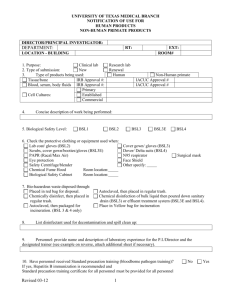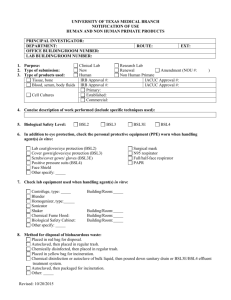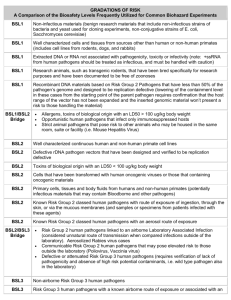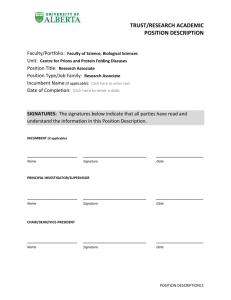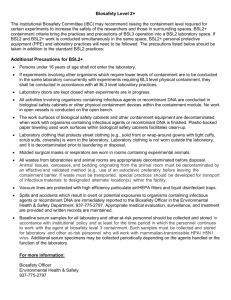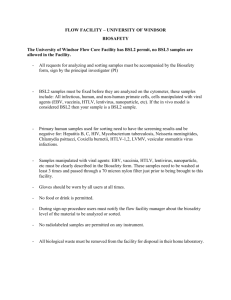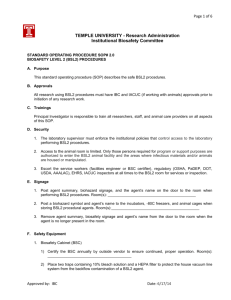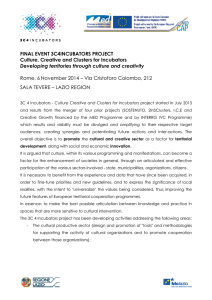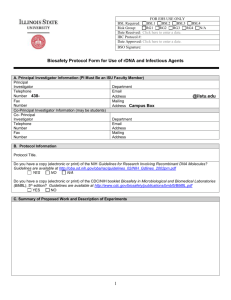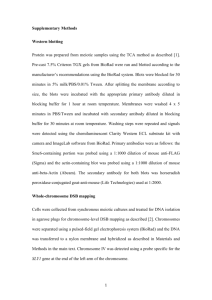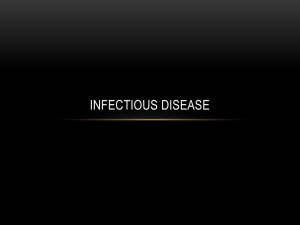DOCX - Office of Research
advertisement
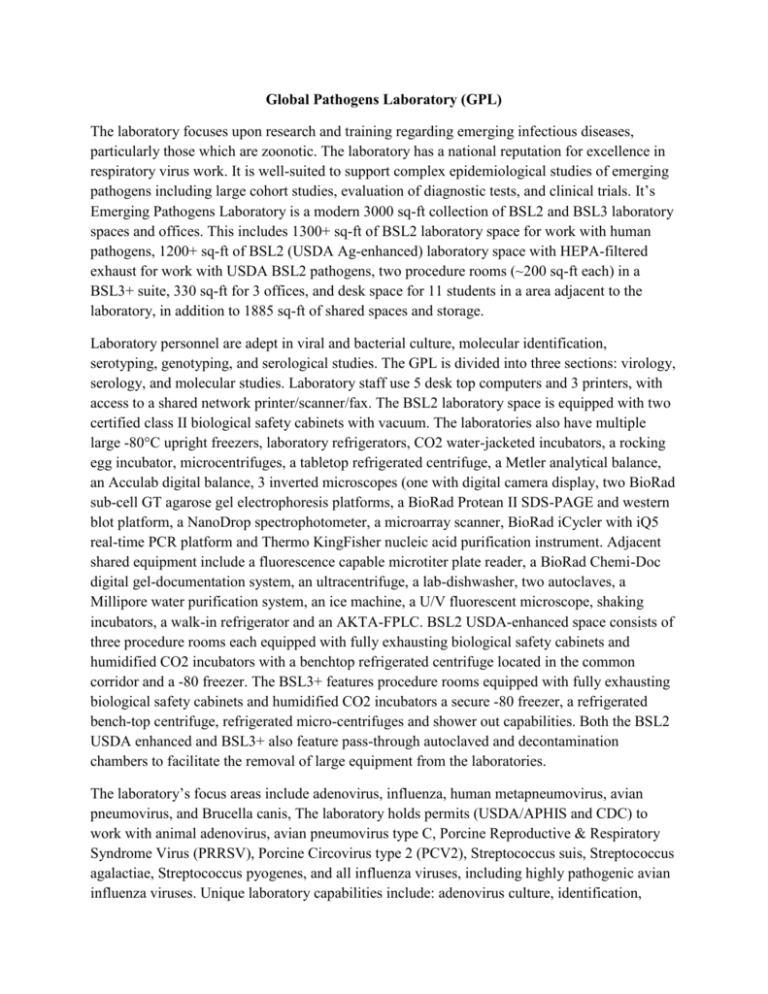
Global Pathogens Laboratory (GPL) The laboratory focuses upon research and training regarding emerging infectious diseases, particularly those which are zoonotic. The laboratory has a national reputation for excellence in respiratory virus work. It is well-suited to support complex epidemiological studies of emerging pathogens including large cohort studies, evaluation of diagnostic tests, and clinical trials. It’s Emerging Pathogens Laboratory is a modern 3000 sq-ft collection of BSL2 and BSL3 laboratory spaces and offices. This includes 1300+ sq-ft of BSL2 laboratory space for work with human pathogens, 1200+ sq-ft of BSL2 (USDA Ag-enhanced) laboratory space with HEPA-filtered exhaust for work with USDA BSL2 pathogens, two procedure rooms (~200 sq-ft each) in a BSL3+ suite, 330 sq-ft for 3 offices, and desk space for 11 students in a area adjacent to the laboratory, in addition to 1885 sq-ft of shared spaces and storage. Laboratory personnel are adept in viral and bacterial culture, molecular identification, serotyping, genotyping, and serological studies. The GPL is divided into three sections: virology, serology, and molecular studies. Laboratory staff use 5 desk top computers and 3 printers, with access to a shared network printer/scanner/fax. The BSL2 laboratory space is equipped with two certified class II biological safety cabinets with vacuum. The laboratories also have multiple large -80°C upright freezers, laboratory refrigerators, CO2 water-jacketed incubators, a rocking egg incubator, microcentrifuges, a tabletop refrigerated centrifuge, a Metler analytical balance, an Acculab digital balance, 3 inverted microscopes (one with digital camera display, two BioRad sub-cell GT agarose gel electrophoresis platforms, a BioRad Protean II SDS-PAGE and western blot platform, a NanoDrop spectrophotometer, a microarray scanner, BioRad iCycler with iQ5 real-time PCR platform and Thermo KingFisher nucleic acid purification instrument. Adjacent shared equipment include a fluorescence capable microtiter plate reader, a BioRad Chemi-Doc digital gel-documentation system, an ultracentrifuge, a lab-dishwasher, two autoclaves, a Millipore water purification system, an ice machine, a U/V fluorescent microscope, shaking incubators, a walk-in refrigerator and an AKTA-FPLC. BSL2 USDA-enhanced space consists of three procedure rooms each equipped with fully exhausting biological safety cabinets and humidified CO2 incubators with a benchtop refrigerated centrifuge located in the common corridor and a -80 freezer. The BSL3+ features procedure rooms equipped with fully exhausting biological safety cabinets and humidified CO2 incubators a secure -80 freezer, a refrigerated bench-top centrifuge, refrigerated micro-centrifuges and shower out capabilities. Both the BSL2 USDA enhanced and BSL3+ also feature pass-through autoclaved and decontamination chambers to facilitate the removal of large equipment from the laboratories. The laboratory’s focus areas include adenovirus, influenza, human metapneumovirus, avian pneumovirus, and Brucella canis, The laboratory holds permits (USDA/APHIS and CDC) to work with animal adenovirus, avian pneumovirus type C, Porcine Reproductive & Respiratory Syndrome Virus (PRRSV), Porcine Circovirus type 2 (PCV2), Streptococcus suis, Streptococcus agalactiae, Streptococcus pyogenes, and all influenza viruses, including highly pathogenic avian influenza viruses. Unique laboratory capabilities include: adenovirus culture, identification, serotyping, and genotyping; human metapneumovirus culture, identification, and genotyping; zoonotic influenza culture (embronated eggs or MDCK tissue culture), identification, serotyping, and genotyping.
